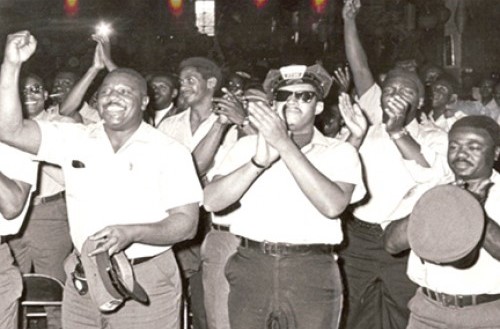On this day in 1968, black bus drivers in Chicago turned off the lights on their vehicles and headed back to the Chicago Transit Authority (CTA) bus barns, beginning a two-week strike that shut down 52 of the city's 128 bus routes and effectively paralyzed the south and west sides of the city. More than half of the CTA's bus drivers were African-American and for weeks they had been fighting unfair union representation.
Like many other protest movements in the 50s and 60s, the drivers took as their model the Montgomery bus boycott, organizing car pools and CTW "courtesy cars" to meet the transportation shortfall in some neighborhoods.
According to Standish Willis, one of the striking drivers who later wrote a college thesis on the incident: "Black drivers were being arrested while trying to close down the white stations, and we were losing what little money we had bailing them out of jail...White drivers at black stations respected the picket lines. The white drivers at the white ones did not."
According to Willis, the strike's failure was due to the collective effort of establishment political powers working against the strike: "With the police arresting our guys, the judges putting guys in jail and holding them for contempt, and the union threatening to kick our leaders out, it was a pretty concerted attack. And we certainly didn't have enough money to get people out of jail at the rate they were putting them in."
